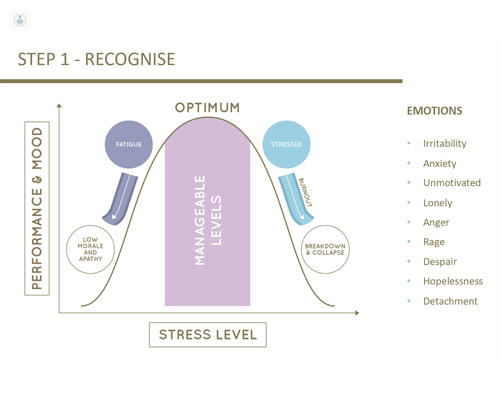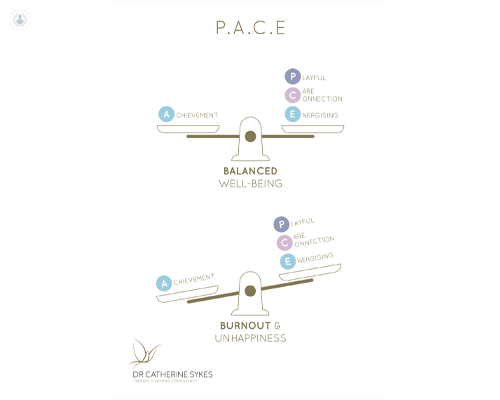The impact of burnout on relationships
Written by:Psychological theory states relationships are an important part of human survival, but they can be difficult to balance alongside our professional lives - and this is when it can lead to burnout. When it occurs, it can have a significant effect on romantic love, friendships or with our family, among many other relationships in our lives.
We speak to highly-regarded chartered psychologist Dr Catherine Sykes all about the impact of burnout and what can be done to achieve a more balanced and fulfilling approach.

How does burnout affect relationships?
Relationships take time and energy. When you’re burnt out out or en-route to burn out, you:
- Become irritable;
- Feel like you are at the end of your tether;
- Your capacity to give someone else time and energy is reduced or non-existent.
In this state, your communication can become very transactional and sometimes seem rude. You may forget your partner has needs, is human and instead, experience your partner as just another demand on your energy. This makes the other person feel devalued.
When one person is burnt out and the other is feeling devalued, it’s a perfect recipe for explosive exchanges or even worse; an avoidance of communication and a moving away from closeness.
Can a relationship survive burnout?
It can, but burnout needs to be acknowledged. Sometimes people don’t like to label what they’re going through as ‘burnout’. They think it’s a sign of weakness and don’t actually feel comfortable showing that weakness to their partner, especially if their 'role' within the relationship is typically associated with strength.

The first step to recovering from burnout is recognising it and giving it a name. The graphic above shows the emotional trajectory from stressed, to burnout, to breakdown. These emotional states impact communication and closeness, and unfortunately get worse the longer someone remains in a state of burnout without help.
What are ways couples can work through burnout?
After burnout is recognised, the next step is recharge. What this looks like depends on the person and the severity of the burnout. After recharge, steps need to take to review and change the patterns and mindsets that brought the person into burnout. Steps need to be taken to get back into what I call the ‘Optimum Zone’.
This isn’t easy and often requires changes from both people in the relationship, as well as other family members and colleagues. A first step is to review how time is being spent. Is it being spent on a range of activities that create good well-being such as playful, caring, connecting and energising activities? Are achievement activities always prioritised and at a cost to other activities that promote wellbeing? See the graphic below.

How can you move away from burnout and concentrate on other aspects of your life, such as relationships?
Burnout is not a weakness. It’s a signal that life needs reviewing.
Many factors protect a person from burnout, including positive relationships. More value needs to be placed on the importance of positive relationships as well as acceptance they take time and energy.
The time and energy required to nurture a relationship needs a commitment. This might mean some changes in how you use your time.
If you are a person that is in a relationship with someone who has burnout, how can you help them - and yourself?
It’s really important you listen to your partner’s experience of burnout without judgement and without jumping in with solutions.
Validate your partner’s experience with comments such as ‘that must be tough’, ‘I can see you aren’t your normal self and it must be difficult for you.’ Listen to what you partner needs; they may be not able to articulate it clearly so you may need to read between the lines.
Once you have validated their experience, you can move to asking if they would like your suggestions or help. For example, you could say ‘Would it help if I share with you how I deal with… ?’ ‘Would it help if I cooked us some nourishing meals for a week?’
Whatever you do, try not to panic about what this means. Burnout is a temporary state that if recognised and changes made, a full recovery is possible.
Dr Sykes’ book ‘Where My Energy Gone?’ goes into further detail about understanding burnout, ending the stress cycle and regaining a sense of control. It’s available on Amazon, here.
Concerned about the impact that burnout is having on your relationships? Arrange an appointment with Dr Sykes via her Top Doctors profile today.


